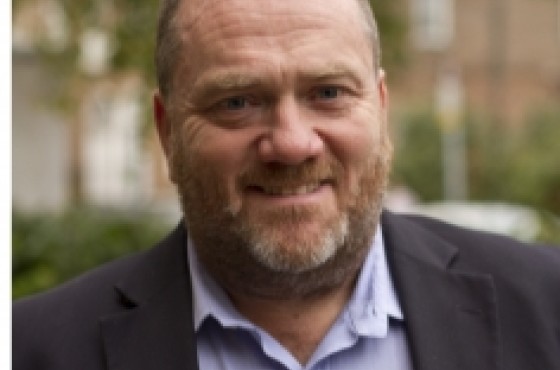'There is significant room for growth, which is encouraging' - Richard Dixon reacts to 2into3’s Irish Not-for-Profit Sector: Fundraising Performance Report

By Richard Dixon, Director of Public Affairs Concern Worldwide
21 Oct 2019
For the last nine years, the consultancy firm 2 into 3 have published a review of fundraising trends in the Irish not for profit sector. It’s a great read – for those of you (all three of you, some would suggest) who share my obsession with charity annual reports and fundraising performance.
The report is published a year in arrears, so the September 2019 launch refers to 2017 data. 2 into 3 should be congratulated on their consistent generation of the report which really adds to our shared understanding of the sector.
To contextualise the report it is worth noting that:
- The data is taken from the excellent Benefacts, and the sample analysed is made up of not-for-profit organisations (more than 20,000) and not just charities (9,000 charities were registered at the end of 2017)
- The sample (6% of Irish non-profits) is substantial, but by excluding organisations who file abridged accounts which omit detailed financial information, are we missing a truer reflection of actual financial performance? In other words, do organisations who adopt abridged accounts perform less well than others? We won’t know until the Regulator insists on all registered charities publishing to a SORP standard.
- Just about half of all not-for-profits use abridged accounts (which is a transparency issue in itself) and just one organisation in 16 actually prepares accounts to SORP standards.
- The overall picture is healthy – 2017 saw a 9% increase in fundraising income - and that performance is mirrored in the international sector.
As I read through the comprehensive report – available here – some thoughts came to mind.
Dependency on the state
In total, the Irish state is responsible for 60% of the not-for-profits sector's income and 61% of income of organisations working in the international space.
This dependency is not unusual. A TCD report based on 2003 annual report data estimated that the dependency was 56%. However, is there a risk that the piper calls the tune and the sector assumes the persona of the state? Does state dependency mean that there’s an understandably strong focus on service delivery but perhaps at the cost of other areas such as programmatic innovation and public advocacy?
The international sector
It’s not entirely a beacon of excellence, but reporting among INGOs is of a higher quality than most other sectors. For example, 17% of not-for-profits identifying as international report using SORP - the highest ratio among the twelve sectors reviewed. In addition, 38% file abridged accounts - the third lowest. That 38%, however, is still almost two in five organisations. Trustees should really reflect why, with unprecedented scrutiny on transparency and accountability, they choose not to use their annual report as a communications tool.
Secondly, membership organisations might consider making the publication of SORP-compliant annual reports (not just their preparation, but their publication) a condition of membership. Charities Institute Ireland (Cii) has adopted this approach and Dóchas also insist on it, which is to be welcomed. Membership renewal is dependent on compliance with the Irish Development NGOs Code of Corporate Governance, which calls for accounts to be made available on the organisation’s website).
Fundraising
In the sector as a whole, Ireland’s fundraising and philanthropy activities lag behind other countries – that may be down to culture, fiscal policy, population size or a mix of all three, but there is significant room for growth, which is encouraging. Fundraising income accounts for 35% of international organisations resources – more balanced than the total sector (who generate just 8% of income from fundraising) – but not as independent as others. Fundraising is hard and getting harder so the sector needs to invest in training and development of the next generation of fundraisers.
Recently published data (summary here) showed that over half of the UK public would be proud to work in the charity sector, but only a quarter would be interested in working in fundraising. That’s unfortunate. I’ve been lucky enough to work with fundraising teams in the US, Europe and Asia, and these teams are populated with passionate and resilient professionals. We collectively struggle to identify new fundraisers and we need to work on that.
Where next?
The ‘where next?’ is easy: we need to generate additional funds in Ireland.
The context is tough - trust levels in charities have just reached 50%. There is unprecedented competition for disposable income from all corners of the not-for-profit sector (including education, sport, and more traditional charities) and a dependency on state income has resulted in a shortage of unrestricted income to invest in innovation, fundraising and people.
The how? Nothing will happen overnight but trustees and management need to be significantly more committed to accountability. And funders - both institutional and private - need to be more determined in linking funding to that accountability. Representative bodies such as Dóchas, The Wheel, and Cii also need to lead with public conversations about acceptable returns on investment, allowing charities to invest in their people and processes.
And charities need to be brave in building up reserves to allow investment.
Richard Dixon is the Director of Public Affairs for Concern Worldwide. He has worked in the charity sector in Ireland for over 30 years.